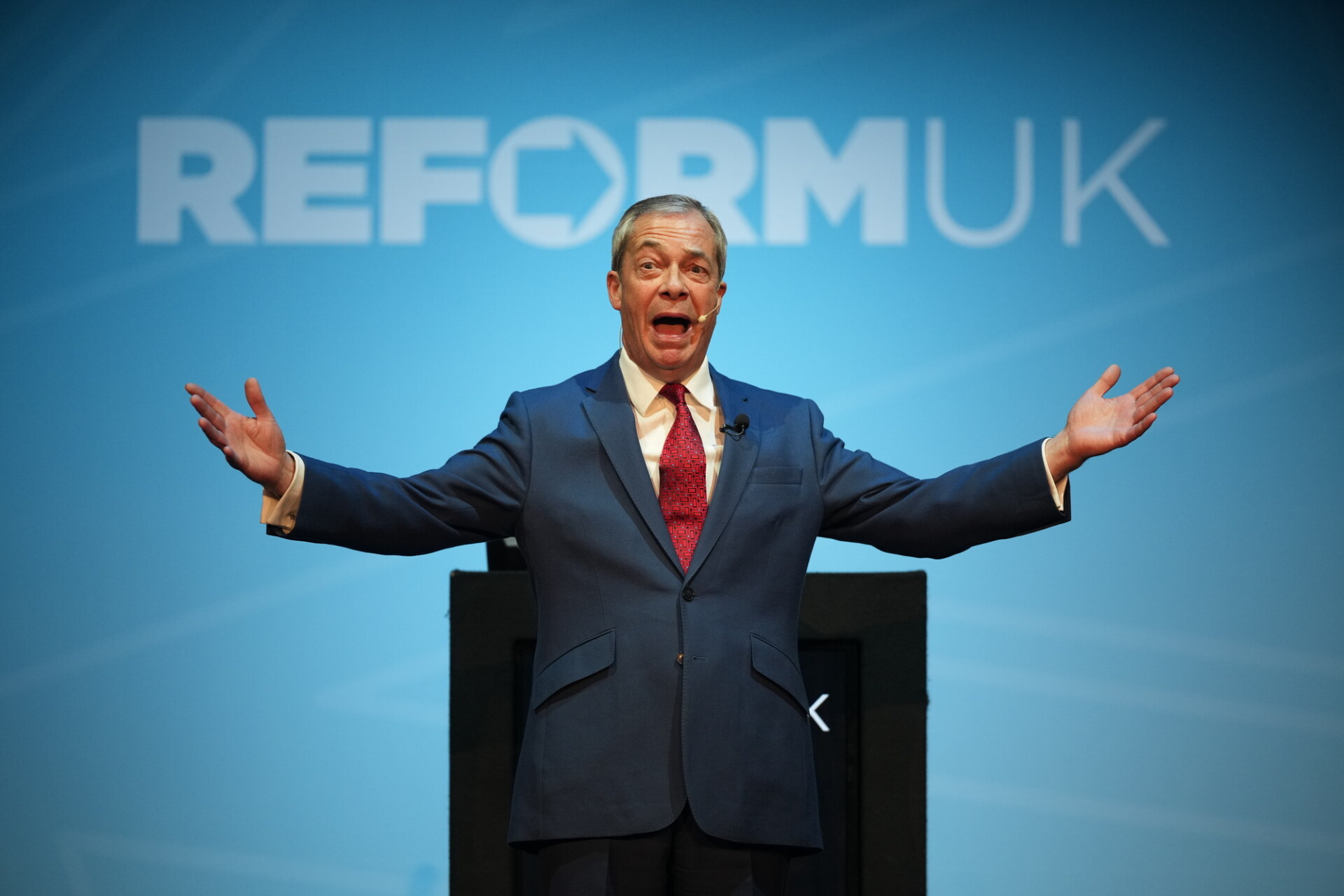Reform is on the march across the UK, and Scotland is no exception. A new Deltapoll survey has found that Nigel Farage’s party now have the support of 17% of Scottish voters, level with the Labour Party and well ahead of the Conservative Party, which is left languishing on just 12%.
Even though the Scottish subsample of this particular survey is admittedly small, it mirrors trends in other recent polls. A Norstat survey in early December suggested Reform had the support of 12% of Scottish voters — more than enough to win at least a dozen seats on the Scottish Parliament’s regional list in next year’s devolved elections. For context, that would give Reform more MSPs than the Liberal Democrats and independence-supporting Scottish Green Party currently have combined.
Nigel Farage himself, who was notoriously accosted by a braying mob outside an Edinburgh pub in 2013, may even be gaining popularity in Scotland as well. The Deltapoll survey reported 11% of people in Scotland would like him to be the next Prime Minister — well ahead of both Kemi Badenoch and Angela Rayner — while a further 14% predicted he would be the next Prime Minister, when they put their own political views aside.
Such theoretical popularity is also being borne out in practice at the polls, with Reform performing strongly in a series of council by-elections since last year’s General Election. In a November contest in the Brexit-stronghold of Fraserburgh, Nigel Farage’s party secured more than 25% of first preference votes. But the party is also winning over voters across Scotland’s supposedly liberal Central Belt too.
Reform recently garnered an impressive 18% of first preference votes in a council by-election in Glasgow’s North East ward, with both the SNP and Labour — who eventually won the seat — seeing their support fall by about 10%. Contests elsewhere in Glasgow, as well as in the Lothians, tell a similar story.
Reform’s strength in Scotland’s north-east, which includes towns such as Fraserbrugh, is not surprising. Given its strong links to fishing and oil and gas, the region should be fertile territory for a Brussels-bashing, net zero-sceptic party. Even at the recent General Election, Reform was already proving popular here, securing almost 15% of the vote in the Aberdeenshire North and Moray East constituency, depriving then Scottish Conservative leader Douglas Ross of victory in the process.
More interesting is the party’s rise in the Central Belt and, particularly, Glasgow. Scotland’s largest city was for decades a bastion of the Labour Party and, in more recent years, the SNP. Yet despite successive promises of change, not least with the advent of devolution, some voters in the city are clearly growing frustrated with Scotland’s two-party, Labour-SNP status quo.
Certainly, as elsewhere in the UK, Reform’s — and, indeed, Nigel Farage’s — growing appeal can be attributed to the party’s disruptive nature and its willingness to reject the shared assumptions of mainstream political parties. This may be particularly the case in Scotland, which has been largely dominated by the centre-left consensus of Labour and the SNP since the advent of devolution in 1999.
Should this trend continue, and Reform maintain or increase its level of support in Scotland, the impact at devolved elections in May next year could be significant. The election of a dozen or more Reform MSPs would, for instance, undoubtedly shake up the Scottish Parliament’s dynamic which, despite its use of proportional representation, has been bereft of new political perspectives for a decade or more.
Yet a surge for Reform also risks a further fragmentation of Scotland’s pro-UK vote, potentially giving the SNP the chance to remain in power for another term. The same Norstat poll that suggested Reform could win a dozen MSPs also ominously showed the Nationalists were, once again, on course to be Scotland’s largest party at Holyrood.
But that, of course, all lies in the future. For now, it is clear that Reform is a growing force to be reckoned with, not just in England, but increasingly in Scotland too.











Join the discussion
Join like minded readers that support our journalism by becoming a paid subscriber
To join the discussion in the comments, become a paid subscriber.
Join like minded readers that support our journalism, read unlimited articles and enjoy other subscriber-only benefits.
Subscribe